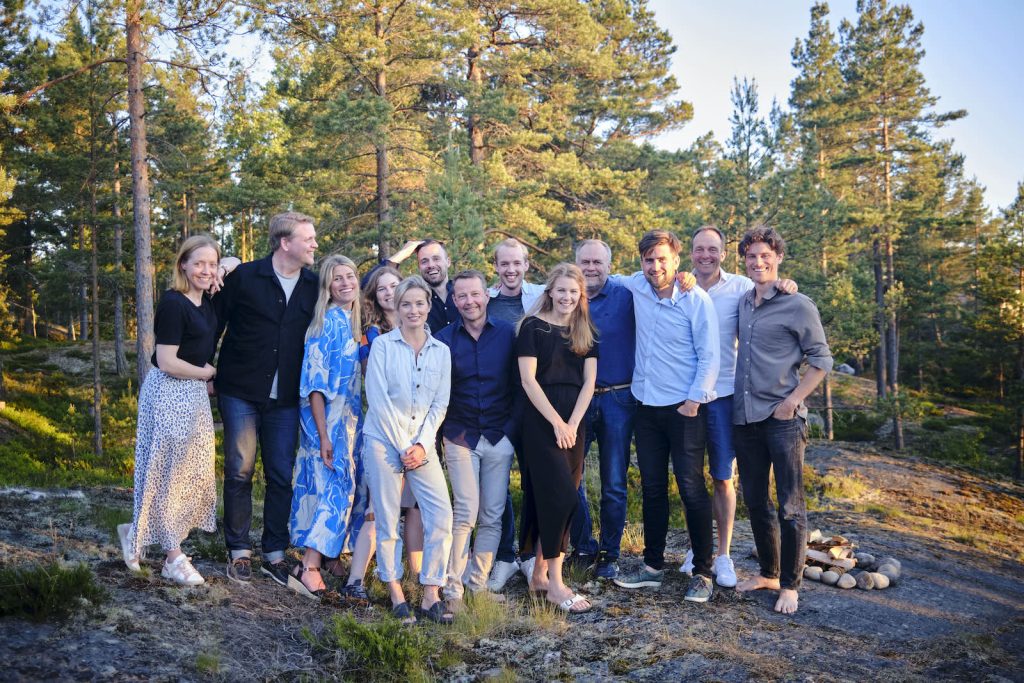Nordic VC Inventure is today announcing its fourth fund, of €150m, to back early-stage startups in the Baltics and Nordics. This fund will also see the VC dip its toes into even earlier stages by writing angel investor-sized tickets.
What’s the focus of the fund?
Inventure aims to be the first institutional investor that a startup brings on, whether that company is in B2B SaaS, healthtech, fintech, deeptech, marketplaces or consumer sectors.
A third of the fund will be allocated for investments in new startups, with the rest kept for follow-on investments in the best-performing startups, according to investment partner Ekaterina Gianelli.
“What we know best is how to create value in the company from pre-seed or all the way to Series B,” Gianelli says.
With ticket sizes ranging from €200k to €5m, this fund also gives scope for the first to make even earlier investments — angel investor-sized tickets.
Angel investments without angels
Inventure’s shift towards trying to access even earlier-stage dealflow isn’t totally unique. Many later-stage VCs have started angel programmes to get better visibility on early-stage companies and to be sure not to lose out on some of the best young startups. Atomico, Sequoia, Blossom Capital and Backed VC have all launched their own scout or angel programmes.
Seed and pre-seed VCs haven’t really seen the need for it since they already have good insights into early companies. Many of the investors at these firms also angel invest with their own money, such as Sophia Bendz, partner at Cherry Ventures.
Unlike other scout and angel programmes in Europe, which give money to angels to invest on behalf of a firm, Inventure’s “angel tickets” will be written by its own investment team. The process for writing these tickets will be less extensive than the usual due diligence involved in larger tickets. According to Gianelli, investment decisions are done within two days of the startup taking calls with three of the firm’s investors.
“I think this angel programme is basically the earliest stage where we can invest when founders have nothing but an idea, a PowerPoint or something similar,” says Gianelli, who runs the angel programme for Inventure.

So far this year, the VC has done five of these angel rounds with tickets ranging from €200k to €500k. The plan is to do 18 in total over the next two years, mostly investing alongside other angel investors.
“It’s not a huge amount of money as such. But then, of course, from the founder’s perspective, it’s a very, very easy way to get additional money to add on top of, for example, angel investors,” Gianelli says.
“The focus is mainly on operators and possibly serial entrepreneurs [for angel tickets]. Some can be new founders, but then we have to have a very high conviction that these people know what they’re doing. And I think that’s the biggest bet.”
Not turning away from high-risk investments
Inventure is one of the most active VCs in the Nordics and has about 80 startups in its portfolio, among them the Finnish refurbished phone startup Swappie, Swedish pet insurance Lassie and an exit in Finnish food delivery startup Wolt, which was acquired by US-based DoorDash last year.
With the tech market cooling down, many founders are concerned that investors will turn their backs on high-risk investments to focus on less risky startups. This is not something that Inventure plans to do.
“In terms of risk profile, we haven’t changed. We invest in very early stages so it’s often a bet on the founders and by supporting the best ones we hope that they know what they are doing,” Gianelli says.
The LPs
While young VCs may have a harder time raising capital for new funds with the shift in the market, closing its fourth fund was not a great challenge for Inventure, according to Gianelli.
With some slight delays with the last few signatures, the fund is now complete with backers made up of 90% institutional investors such as the European Investment Fund, UK-based Molten Ventures and local Nordic actors such as insurance company Ilmarinen, the state-owned private equity company Tesi and financial institutions like OP and Nordea. The other 10% of LPs are family offices and private individuals.
Mimi Billing is Sifted’s Nordic correspondent. She also covers healthtech, and tweets from @MimiBilling
Credit: Source link


Comments are closed.